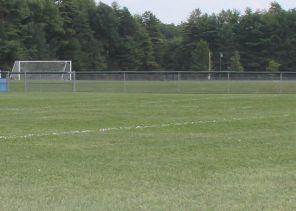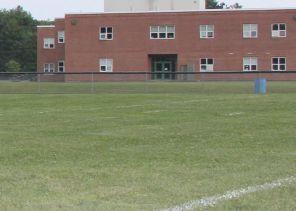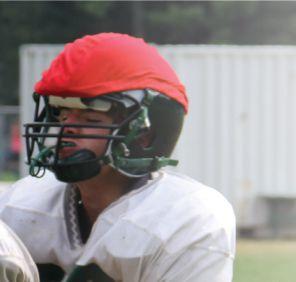
6 minute read
Heads Up



Heads Up New Maine law changes the concussion discussion











Feeling helpless, Jamie Watson rushed her son to the emergency room, learning then he had a concussion…something she’s been trained to deal with as a physical education teacher and girls’ soccer and softball coach.
“All educators need to take concussions seriously. You can do a lot of damage if it is not taken seriously and you continue to play a sport or use bright lights and electronics you can do more damage. At this age when their brains are still forming you can never be too careful,” said Watson.
Concussions on the rise
Most concussions occur without a loss of consciousness and according to the Centers for Disease Control children and teens are more likely to get a concussion and take longer to recover than adults. According to a study published in The American Journal of Sports Medicine, the rate of concussions in U.S. high school athletes more than doubled between 2005 and 2012. According to the research published, concussions in high school sports were reported in seven sports including football, soccer, wrestling, softball, baseball and volleyball; football recorded the highest rate of concussions. The Department of Education is in the process of analyzing its own concussion data as part of a new survey of Maine nurses in an eff ort to understand both the scope of the issue and how to provide necessary support in light of a new state law about traumatic brain injuries and “A lot of our students will schools. The 2014-15 school year is the fi rst full year where all Maine schools are required to say their head hurts. That’s WHAT IS A have in place and implement policies surrounding the management of concussions one of the symptoms that lingered the most...the CONCUssION? and other head injuries. Registered Nurse and Maine School Nurse Consultant headache,” said Jamie Watson, South Portland EA, Physical Education A concussion is a type of Nancy Dube says even with teacher and coach. brain injury that changes the new policies, which can way the brain normally works. include a concussion policy A concussion is caused by a management team in schools to ensure training is taking place and education about bump, blow, or jolt to the head. the issue, it is not possible to prevent concussions. However, according to Dube, all Concussions can also occur from a blow to the body that causes the head and brain to move rapidly back and forth. Even what seems to be a mild bump to the head can be serious. educators should “try and build a safety net” for students who suff er a head injury. “Their brain is bruised, it is damaged, it needs time to heal. Everybody wants the fi x—‘this is going to protect our children’—that’s just not true. Instead, education is our key thing and getting people resources and the tools to manage concussions. It’s concussion management that will hopefully reduce the chance of concussion,” Concussions can have a more serious eff ect says Dube. on a young, developing brain and need to be addressed correctly. Managing Concussions Source: Centers for Disease Control and Prevention “Let’s go guys. Let’s go!” It’s 83 degrees. The sun is blaring. Still, captain and quarterback Zach Dubiel 12 Maine Educator • October 2014
isn’t shy about pushing the Bonny Eagle Scots football team. He’s had a taste of success and wants more. Bonny Eagle won the state title last year under the leadership of Coach and member Kevin Cooper and Cooper is making another run for glory. “We’ve got a good group,” said Coach Cooper. But even with the desire to repeat the Scots state championship, Cooper always puts safety fi rst especially considering his reality. “There are usually a handful of concussions each year,” said Cooper. “Our fi rst concern is for the athlete. What’s worrisome is the next hit that can be the one that ends their career. The best thing about the concussion law is it’s out of our hands; we have to pull them out,” says Cooper.
The Scots have a set protocol for dealing with any player who complains of things like headache or dizziness. “We immediately pull him from competition. The trainer evaluates the player and if there is a concern for a concussion they see the team doctor. If the player has a concussion there is a set protocol for return to play,” said Cooper.
That protocol is part of the new law which mandates a set of accommodations needed for students who suff er concussions (see “Our fi rst concern is for the athlete. What’s below). As part of concussion management, Cooper is certifi ed in CPR worrisome is the next hit that can be the and First Aid and receives routine training on head injuries, which the law requires. In addition, his ability to coach properly helps each player, one that ends their career.” - Kevin Cooper, including his star quarterback who credits Cooper for teaching him the Saco Valley TA, Bonny Eagle High School Football Coach way to play in order to stay as safe as possible.
“You are taught to squat down and lead with your chest and not your head and that way you can try and prevent concussions. It’s about how you play—but freak accidents can happen.” Just like the accident that happened to Jamie Watson’s son. It taught her concussions can happen anywhere, the playground, gym class or on a fi eld, regardless of the sport. Now, it’s a matter of how educators recognize concussion symptoms to best help a student not only return to play but return to learning as well.

signs and symptoms of a Concussion include:




Answers questions slowly Appears dazed or stunned Forgets class schedule or assignments is confused about events repeats questions Can’t recall events prior to the hit, bump, or fall after the injury shows behavior or personality changes


Source: Centers for Disease Control and Prevention
Academic Accommodations for students with Concussion as Mandated by New Law
___ Excused absence from classes ___ Reduced school day or rest periods during the day ___ Extension of assignment deadlines ___ Extend test taking time ___ Accommodations for light and/or noise ___ Excuse from PE, activities and team sports ___ Use a reader/recorder for assignments/test taking ___ Provide smaller quieter room for exam taking



Source: www.maine.gov/doe/concussion Complete list at www.maineea.org/concussion








